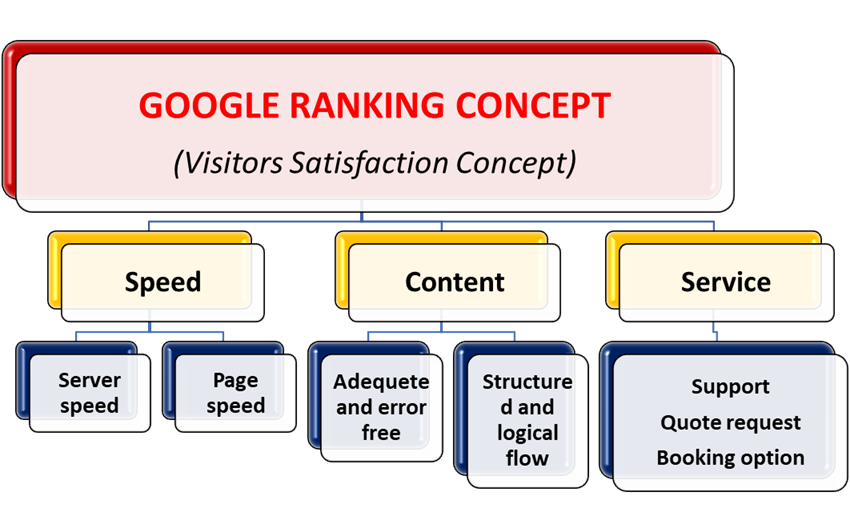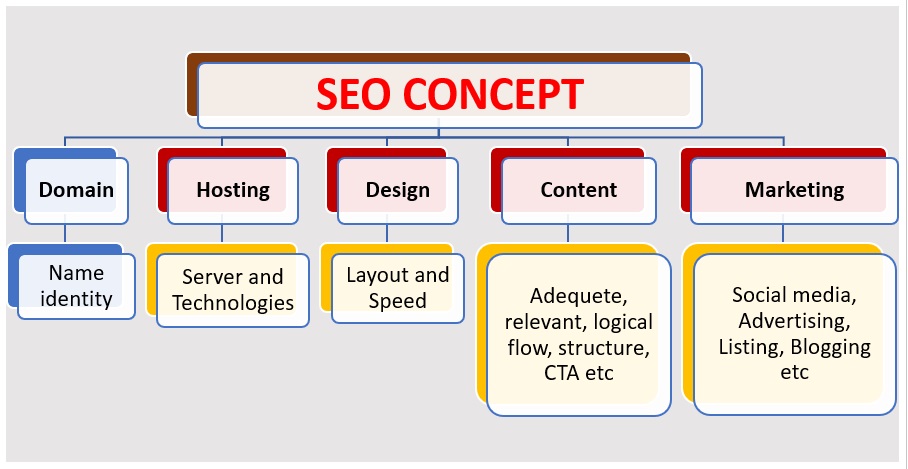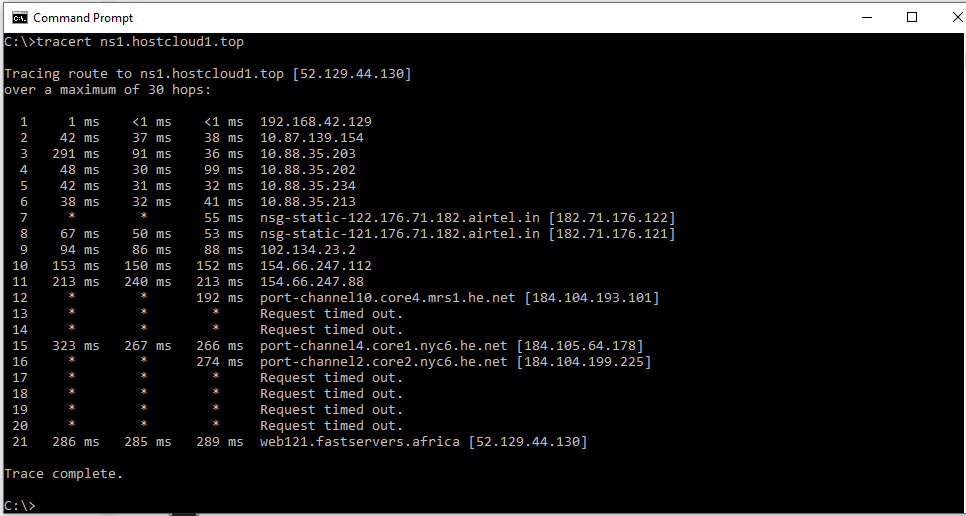Highlights
Introduction
This course is designed to cover non-technical areas in SEO where most marketers can fit in. IT is a course that will enable any marketer to become a popular blogger and online marketer. With this knowledge you can do many online businesses weather in normal websites, blog, directories, social media or any other online media.
To make it easy we use 3 pillars concept to deliver the required message to the audience
Our introductory part will constitute the following 3 pillars
- Website Audit
- SEO Concept
- Google Ranking Concept
Website Audit
Definition
Website audit is an analysis done by a website marketer in order to know the current SEO status-quo of the website. Analysis trying to relate the website with current SEO practices in the respective industry. The main objective of this audit is to find issues that affecting organic ranking of the website which can be included in the next SEO Project planning and implementation.
The questions below touch the critical aspects of SEO requirements:
When answered correctly, these answers can help develop a Website SEO Audit Report
- Does the website have a clear marketable brand or identity?
- Is the website language, font type and size, color scheme and other visual look match the niche market and audience?
- Is the website 99.9% uptime % per year?
- Is the website mobile friendly?
- Is the webpage fast in both mobile and desktop devices?
- Is the website compatible with popular browsers?
- Is the website calling protocol secured?
- Is the website free of errors?
- Is the website well hardened?
- Are the website content rich enough to satisfy the needs of the visitors?
- Is web content well-structured to offer a smooth logical flow to the readers?
- Is website content well optimized?
- Is a website navigation system well implemented to provide the visitors with smooth surfing and browsing experience?
- Are website meta tags (meta tags include the <title> and <description> elements) well implemented?
- Are website images well optimized and placed in the website with relevant alt text and sizes?
- Are website anchor-links well implemented?
- Are website functions and features well implemented?
- Is website Sitemap and Robots.txt well placed?
- Is the website code to text ration small (Recommended is between 25% to 70%)?
- Are website Open Graph Meta Tags correctly set?
- Is your website schema markup correctly set?
- Is the website linked with social media?
The SEO Audit Report is a must have documents before planning and doing and SEO project. The exercise can be done using AI tools or do it manually
Reference for Site SEO Audit
Some of the tools here are free and others are premium tool, you must pay to use the tool.
- SEO Checker | Test your website for free with Seobility
- Website Optimization and Digital Agency Sales Tools | WooRank
- Semrush – Online Marketing Can Be Easy
- Analyze Websites With Free SEO Audit & Reporting Tool – SEOptimer
- Free SEO Checker: Website SEO Analysis Tool & Audit Report (neilpatel.com)
- SEO Site Audit tool by Ahrefs
- SEO Tools, Software and Articles | SEO Site Checkup
- Audit your website for SEO and performance – Geekflare Tools
- Website SEO Checker & Audit Tool: Test Your Score for FREE ? (sitechecker.pro)
- Website Audit Tool – Automated Site Audit ?? 120+ Checks (seranking.com)
- Technical SEO Audit | Website Auditing Tool (serpstat.com)
Page speed tools
Schema markup common categories
9 Most Common Schema Markup Types – Overdrive Interactive (ovrdrv.com)
Math rank plugin is the best plugin to help you your assign relevant schema to your webpage
SEO Concept
How SEO Works?
To explain how this works, let me dip inside Search Engine Optimization with reference to Google
Why Search Engines?
Almost 90% of people who search information via the internet uses search engines
Why Google?
Almost 80% of people who search information via search engines uses Google Search Engine
Domain name: The name must really represent corporate identity. Name must be short, easier to pronounce/remember and that represent your corporate brand name/identity to your customer base. This will make it easy for your visitors come back to your website without being lost.
Hosting: The webserver speed must enhance general webpage speed. The server must use a speedy internet connection, modern fast hardware and applications that work very fast. So, the server speed indicates how fast your host’s machine will process user requests and find the needed content as fast as possible. To test server speed just ping or tracert the nameserver or associated IP address from the command prompt. The fast server must be below 350-400ms and an average speed server up to 700-800ms. A slow server is above 700-800ms
Design: When visitors visit your website, they expect to found a well branded website which is fast and if they found otherwise, they will be angry and most of them will leave your website without doing any activity.
Google will also be angry and will allocate your website with a big Bounce rate which consequently lead to low ranking
Content: When a visitor visits your webpage, he/she expect also to find well arranged, structured and logically written quality content that satisfy his/her needs. If he/she find no quality content again he/she will become angry and leave without doing any activity in the page. We expect the same outcome from Google
Marketing: It will now make sense if everything with your website is OK to publicizes so that targeted people will know that website exists and offering service that they want. Use any means so that your website is exposed to as many people as possible. The best way is to use social media with many followers, likes and lots of people engagement
Google Ranking Concept
How Google Ranking Works?
Google uses its algorithm to rank collected keywords by its bots in relation to the webpage URL. The algorithm contains several criteria and signals that assign points to your keywords attached to your webpage URL. If your keyword and its URL receive enough points over the other keywords from competitors webpages then your webpage will be ranked higher in Google search results page.
If the points are the highest one, your keyword will be ranked no. 1
If your keyword assigned points is the second highest then it will be placed no. 2 in the results page and likewise to the other keywords. Point to note
Every ranked keyword goes with the following aspects
- Webpage URL
- Webpage Title
- Webpage description
Elaboration from Google cited results page for the Keyword “Tanzania Budget Safari, 5 days”
How are these points allocated to the keywords?
I will not give the 100% answer because that one is not available, but I will provide a big picture of what actually happen in keyword ranking with Google
Of all thousand rules included in the Google algorithm, only one rule prevails
“Love your web visitors as you love yourself”
Google want web designer, developer, content creators and marketers to put the website in such a way people will love it and stay longer in the website.
The questions above under Website Audit will ensure that your visitor will love your website
How Google understand that your web visitors love your website?
Google can collect some signals via Googlebot’s, those signals are:
- Bounce rate
- Time spends in the page
- Trusted by other trustworthy websites thru quality inbound links
Google never dare to bring visitors to the website which is not loved by other visitors, WHY? Because in order for a person to visit your website, he/she first become Google customer. Google care a lot its customers and they are not ready to let them down by taking them to the bad website
Bounce rate is defined as a number of visitors who visited your website and left immediately without engaging to any part of your website.
To understand better a bounce rate and its impact let check this table and the recommendations
| Bounce rate | People preference | Impact |
| <=10% | Excellent | Google will rank keywords from this webpage very high with very minimal competition. |
| 20%-30% | Very good | Google will rank keywords from this webpage with minimal competition. |
| 40%-50% | Good | Keyword ranking from the webpage like this will face a moderate competition from competitors. |
| 60%-70% | Average | Keyword ranking from the webpage like this will face a high competition from competitors. |
| 70%-80% | Bad | Google will tend to suppress ranking keywords from urls of this standard. |
| 80%-90% | Very bad | Google will tend to avoid ranking keywords from urls of this standard. |
| >=90% | Unacceptable | Google will impose several bans on ranking keywords from urls of this standard. |
 Speed: When visitors visit your webpage, they expect to found a website which is fast and if they found otherwise, they will be angry and most of them will leave your website without doing any activity.
Speed: When visitors visit your webpage, they expect to found a website which is fast and if they found otherwise, they will be angry and most of them will leave your website without doing any activity.
Google will also be angry and will allocate your website with a big Bounce rate which consequently lead to low ranking
Content: When a visitor visits your webpage, he/she expect also to find well arranged, structured and logically written quality content that satisfy his/her needs. If he/she find no quality content again he/she will become angry and leave without doing any activity in the page. We expect the same outcome from Google
Service: After surfing your fast webpage and finish reading your quality content, a visitor expects good quality service from your webpage. This service includes any support, quote application and or product or service booking function. If no service, the visitor won’t do any enough activity that will send good signals to Google.
If all above are implemented very well then Google will like your webpage and will rank your keywords from that webpage so that more visitors will come and benefit from your quality content.
Google is doing all these because Google believe that all visitors who visit your website become Google customers first and Google is not ready to let down their customers by sending them to bad webpages





